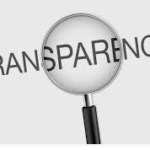As a long-time observer of proxies, it’s refreshing to see the explosive growth in the use of infographics. If used properly, graphics can convey a message—particularly a complicated one—in ways that text simply can’t. Something that used to take several paragraphs to explain, and explain poorly at that, can often be relayed in a single graphic that takes up half the space.
Most proxies have several opportunities to add tables, charts, graphs, and other design elements. It’s now fairly common for proxies to list all of the directors and certain basic information about them in a table. Consider bringing those details to life by adding small graphics to show the spread of directors’ ages and tenure on the board and certain personal characteristics. Does your proxy have four paragraphs detailing acquisitions or the evolution of the company’s business? Consider creating a visual timeline. How about augmenting your list of peer companies with graphics showing how you compare to the peer group on certain key metrics? Once you start looking for possibilities, you are sure to find many.
There are a few key things to remember when you create an infographic. First and foremost, it must be accurate and appropriately scaled: don’t make the good numbers bigger than the bad ones! Second, label everything so your readers know what they are looking at. Finally, take advantage of your graphic and eliminate some text. Most messages don’t need to be conveyed in both pictures and words. If something is particularly important, go ahead and use both a graphic and text, but don’t repeat yourself several more times.
Thanks to Lois Yurow for her wisdom on this one!


























